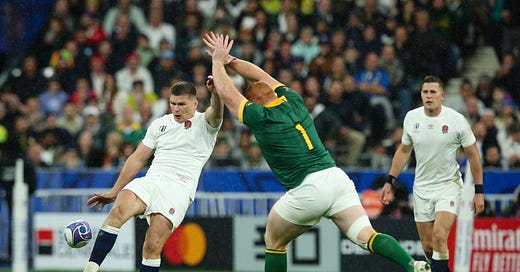Never the twain shall meet
We can all agree on one thing about rugby: we do not like how the other lot play, PLUS: a quick and incomplete wrap of a big weekend.
Oh, North is North, and South is South, and never the twain shall meet...
With apologies to Rudyard Kipling, whose compass points I have bastardised for my own ends, there was something of The Ballad of North and South1 about the long weekend’s semifinals.
That Kipling was a noted Imperi…
Keep reading with a 7-day free trial
Subscribe to The Bounce to keep reading this post and get 7 days of free access to the full post archives.




